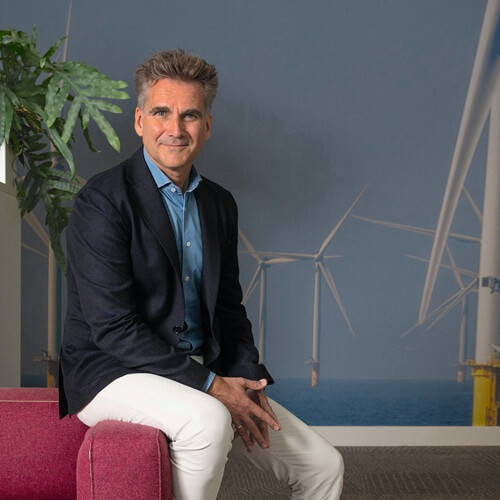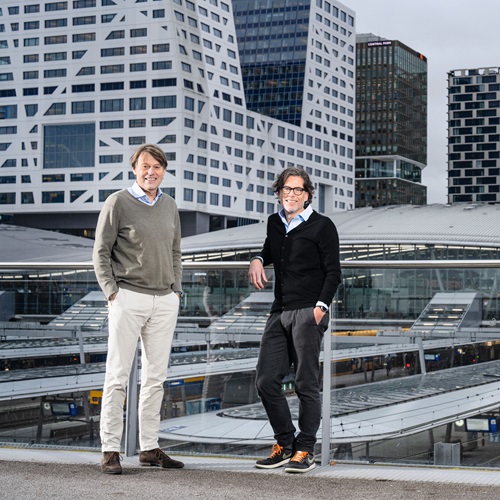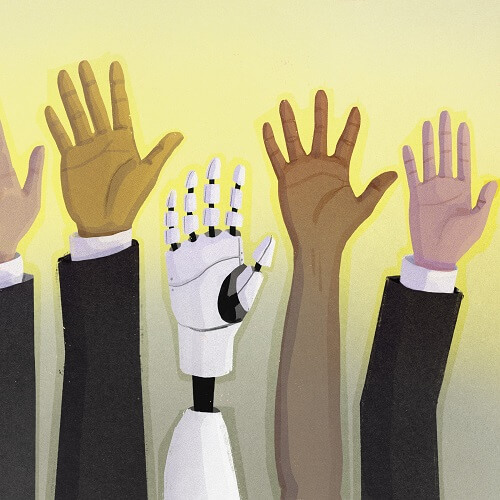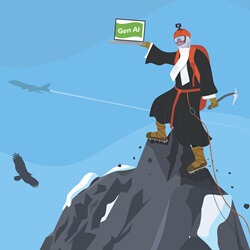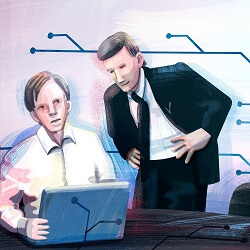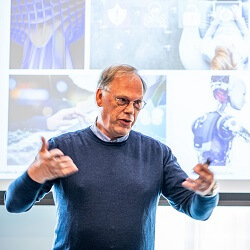Digitalization and Disruption
Disruption, you could call it the revenge of digitalization. Those of us who consciously experienced the dotcom era at the turn of the century may remember how stock prices soared due to the combined promise of the digital transformation and the Internet. The Internet would create whole new business models and would rapidly change entire sectors. The corporate establishment stood by and watched. Working with a personal computer (PC) in the office, emailing instead of faxing or calling, that was one thing, a bit of business development online was another, but a whole new business model or a new strategy for the sake of the Internet? That’s just not on!
That was back then: the days of slow-modem Internet, exponentially less processing power for computers, memory chips and so on. The Internet hype came and went. Apart from a few companies, such as Google and Amazon, many of the new Internet companies failed miserably.
We now have WiFi and 5G and above all: very powerful computers that can effortlessly handle complex software, often provided with artificial intelligence. The dreams of the dotcom era are now becoming reality. Innovations involving mobile and social are the order of the day. Selling is as much done through Facebook and Google Maps as through a brick-and-mortar shop. Completely new strategies create new business models and these create changing value chains. An Internet platform like Marktplaats changed numerous sectors. We may then indeed call it disruption. The large corporations that remained almost bored on the sidelines at the turn of the century are now themselves forced to undergo a digital transformation or digital transition, as it is sometimes called.
This disruption does not end where we are now. Major themes such as climate change, the focus on sustainability, the stakeholder model, social impact and the rise of purpose-driven organizations require our brightest minds to focus on even faster digitalization, digital innovations and software solutions.
Digitalization is also causing a revolution in companies. Agile working, the agile organization, international decentralization, the rise of all kinds of robotics and robotization in general: none of this would be possible without digitalization, and especially the use of data, which is made available to whomever needs it via a cloud application.


Vincent Tuk (Eneco): ‘Data is key in this new energy world’
For energy supplier Eneco, data forms the basis for both commercial activities and the pursuit of a more sustainable transition. Chief Technology Officer Vincent Tuk and his team of six hundred employees play a crucial role in the organization’s tech-first ambitions. ‘But non-technicians need to be equally aware of the possibilities of data and artificial intelligence. Our tech team and our business team are fully integrated.’
Read moreTechnology is designed for convenience, speed, and comfort. This makes it more difficult to consider whether we should actually want something. The challenge of the digital age is not so much a technical one as a moral one. It is precisely in the boardroom that we should look for friction, argue Hilde van der Baan and Gijs Linse of A&O Shearman.
What must organizations do to survive in the digital age? This question is explored in a series of articles in Management Scope by Hilde van der Baan and Gijs Linse of A&O Shearman. This time, they interview Roos Slegers, philosopher, ethicist, organizational consultant, and assistant professor at Tilburg University. She foresees problems in the field of innovation. ‘GenAI does not offer anything surprising or niche. For that you need old-fashioned human virtues – such as courage and the willingness to ask critical questions.’
Technology should be open for discussion, not considered a fait accompli
Technology is designed for convenience, speed, and comfort. This makes it more difficult to consider whether we should actually want something. The challenge of the digital age is not so much a technical one as a moral one. It is precisely in the boardroom that we should look for friction, argue Hilde van der Baan and Gijs Linse of A&O Shearman.
‘Critical thinking in a world smoothed over by AI’
What must organizations do to survive in the digital age? This question is explored in a series of articles in Management Scope by Hilde van der Baan and Gijs Linse of A&O Shearman. This time, they interview Roos Slegers, philosopher, ethicist, organizational consultant, and assistant professor at Tilburg University. She foresees problems in the field of innovation. ‘GenAI does not offer anything surprising or niche. For that you need old-fashioned human virtues – such as courage and the willingness to ask critical questions.’
Generative AI (GenAI) is rapidly transforming the digital world. Europe finds itself in a complex position. On the one hand, the continent wants to benefit from the advantages that GenAI offers, on the other, it struggles with a growing dependence on American technology giants. Europe needs to find a balance, writes Naser Bakhshi of Deloitte. But how?
The banking world was a leader in the digital transition with internet banking and mobile banking. Now, to ensure the security and reliability of financial transactions, digital acceleration has become a top priority. Alexander Zwart, chief innovation & technology officer of Rabobank, ensures that the bank has the strength and flexibility to deal with technological changes. ‘Simplification is essential.’
The CIOs of NS (Dutch Railways) and ProRail rely on each other to keep the Dutch trains running. They therefore work together closely, explain Hessel Dikkers (NS) and Arjen Boersma (ProRail). ‘Of course, we could develop IT independently. But one way or another, it all connects in the end. We know that without data sharing and cooperation, no trains will run. Our reciprocal support is vital.’
Europe’s path to digital sovereignty
Generative AI (GenAI) is rapidly transforming the digital world. Europe finds itself in a complex position. On the one hand, the continent wants to benefit from the advantages that GenAI offers, on the other, it struggles with a growing dependence on American technology giants. Europe needs to find a balance, writes Naser Bakhshi of Deloitte. But how?
Alexander Zwart (Rabobank): ‘We will not settle for over complexity’
The banking world was a leader in the digital transition with internet banking and mobile banking. Now, to ensure the security and reliability of financial transactions, digital acceleration has become a top priority. Alexander Zwart, chief innovation & technology officer of Rabobank, ensures that the bank has the strength and flexibility to deal with technological changes. ‘Simplification is essential.’
Arjen Boersma and Hessel Dikkers: ‘We are truly dependent on one another to keep our trains running
The CIOs of NS (Dutch Railways) and ProRail rely on each other to keep the Dutch trains running. They therefore work together closely, explain Hessel Dikkers (NS) and Arjen Boersma (ProRail). ‘Of course, we could develop IT independently. But one way or another, it all connects in the end. We know that without data sharing and cooperation, no trains will run. Our reciprocal support is vital.’
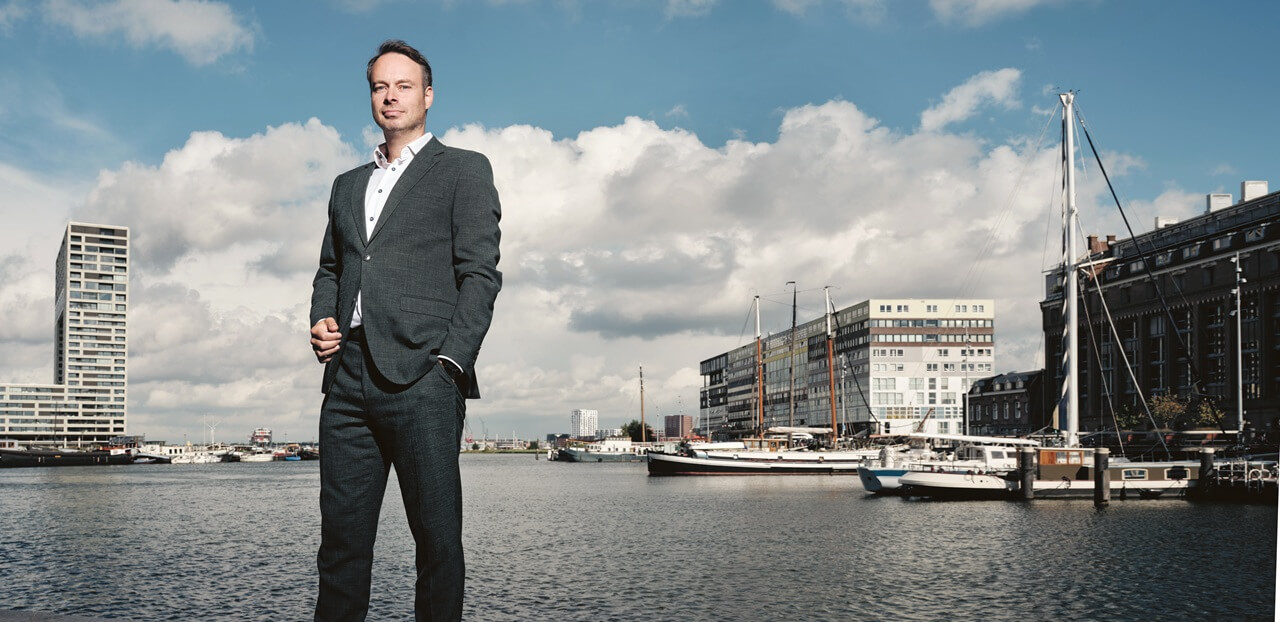
Raymond van Eck (Fairphone): ‘We are done being the exception’
What do organizations need to do to survive in the digital age? This series on entrepreneurship in the digital age will explore that question in depth over the coming months. This time, we speak with Raymond van Eck, who has been CEO of Fairphone for a year and wants to scale up as a producer of sustainable and fair smartphones without compromising on core values. ‘If we want to show the industry that you can produce consumer electronics in an ethical way, we will have to prove that you can be successful doing so. That means we now have to take commercial steps to achieve some serious scale.’
Read moreMost read

Vroukje van Oosten Slingeland (ING Group) on AI Applications in Legal
When it comes to generative artificial intelligence (GenAI), the egg of Columbus has not yet been hatched, says Vroukje van Oosten Slingeland, general counsel at ING. The future potential of AI is great, she thinks, also for lawyers: ‘However, human intervention will always be important to steer artificial intelligence in the right direction.’
.jpg)
Bart Leurs (Rabobank): ‘We Implemented a Temporary AI Stop’
Data, financial and non-financial, are essential for Rabobank. Chief Innovation and Technology Officer Bart Leurs talks enthusiastically about the opportunities associated with the Artificial Intelligence era and how he is preparing the organization on this front.
Safe use of AI in the Workplace: Guidelines are Essential


Ingrid de Swart (a.s.r.): ‘Technology Must Be Innovative but Also Manageable’

Christian Tabois (Celonis): ‘Process Intelligence Brings Projects to Maturity and Value’
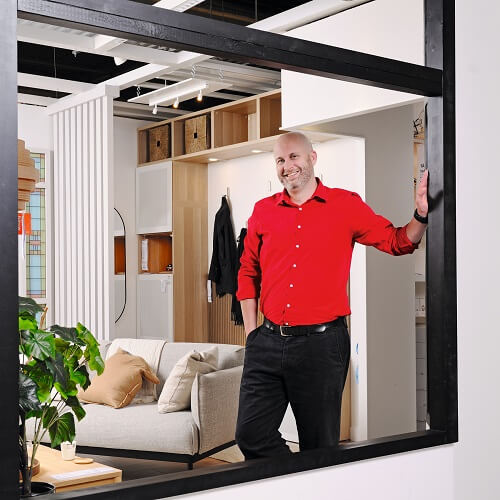
Kevin Gamble (IKEA) on Digitalization: ‘More Time for Value-Adding Work’

How to Increase Involvement During the Digital Transformation

A Healthy Sense of Paranoia Can Only Benefit the Digitization Revolution
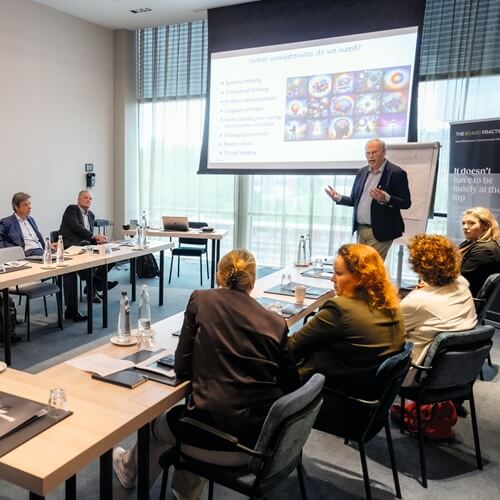
Masterclass AI: 'Clean Data Are the New Gold'
Executive Board members and Supervisory Board members bear the ultimate responsibility for managing cyber risks. In view of the new NIS2 directive, which obliges essential sectors to take measures, this should receive more attention - especially since the directive is being transposed into national legislation. Adherence to security policy only happens when the top sets a good example, but Executive Board members often make exceptions for themselves.
Artificial intelligence offers huge opportunities, but also risks and ethical dilemmas. During the masterclass on AI for Company Secretaries on the search for safe application of this technology, one thing becomes clear: it is imperative to ensure the boardroom’s knowledge on AI is in order.
Directors, Adhere To Your Own Cybersecurity Policy
Executive Board members and Supervisory Board members bear the ultimate responsibility for managing cyber risks. In view of the new NIS2 directive, which obliges essential sectors to take measures, this should receive more attention - especially since the directive is being transposed into national legislation. Adherence to security policy only happens when the top sets a good example, but Executive Board members often make exceptions for themselves.
Masterclass Artificial Intelligence: ‘ChatGPT Is Not That Clever’
Artificial intelligence offers huge opportunities, but also risks and ethical dilemmas. During the masterclass on AI for Company Secretaries on the search for safe application of this technology, one thing becomes clear: it is imperative to ensure the boardroom’s knowledge on AI is in order.

Pension Fund Administrators And The Challenge Of Real-Time Data

Bart Leurs (Rabobank): ‘We Implemented a Temporary AI Stop’

Five Data Solutions Worth the Investment

Javier van Engelen (Signify) Sees a Broader Role for the CFO

The First 100 Days as Executive Board Member at VodafoneZiggo



.jpg)
